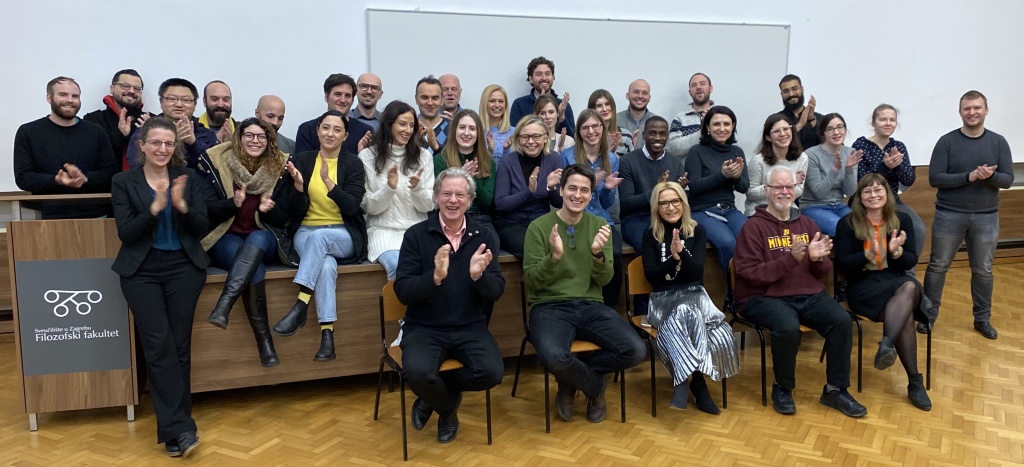During the 4-day Training School participants were introduced to a variety of perspectives to analyze and evaluate argumentation in public policy communication:
TheTraining School Croatia APPLY Winter School 2020: Methods of Argument Analysis and Evaluation in Public Contexts was organized in Croatia, at the Faculty of Humanities and Social Sciences at the University of Zagreb on 15 -18 January 2020. During the Training School 40 participants from Italy, Hungary, Poland, Portugal, Switzerland, Serbia, Croatia, Albania, Malta, Netherlands, UK, Turkey, Denmark but also USA and Canada, learned about different methods of analyzing and evaluating arguments.
Jean Wagemans (University of Amsterdam, the Netherlands) dedicated his session to problems and solutions on identifying arguments expressed in natural language. The aim was to increase participants’ theoretical insight into the nature and characteristics of the various types of arguments as well as to further their practical skills in reconstructing argumentative discourse. Participants were familiarized with a formal linguistic approach to argument categorization called the Periodic Table of Arguments (PTA) and trained in using a procedure for argument type identification based on this categorization.
Sara Greco (Università della Svizzera italiana, Switzerland) introduced a method for analyzing argument schemes (loci) in public policy communication on the basis of the Argumentum Model of Topics – AMT. This session focused on inference in argumentation and gave a method to reconstruct implicit premises distinguishing between inference-based premises and contextual-material premises that are (or are not) shared among discussants.
Marcin Lewiński (Nova University of Lisbon, Portugal) dedicated his session to analyze public policy discourse as an instance of practical reasoning, traditionally defined as reasoning about what to do (rather than what to believe). Participants were familiarized with the basic concepts related to practical reasoning (beliefs, desires, intentions) and a specific scheme of (public) practical argumentation, resting on a comparative assessment of competing courses of action (measures, policies) to be taken. As such, practical argumentation was treated as a special instance of crafting positions in a Polylogue Framework, an approach to argumentation analysis, which highlights the multiplicity of competing positions, players and places in public policies.
Mark Aakhus (Rutgers University, US) introduced participants to a methodology for analyzing argumentative context in policy communication based on the Polylogue Framework. Having in mind that methods for argument analysis have increasingly focused on techniques for using context to analyze argument, in his session they went a step further to consider methods for analyzing how argumentative contexts are created. Such analysis makes visible how argumentation functions to shape the content, direction, and outcomes of human face-to-face activities and their distributed activities characteristic of policy deliberations and controversies. Special attention was given to argumentatively analyzing the many roles and many places in our digital public environments that support, mediate, or facilitate policy discourses and outcomes.
Participants were also assigned pre-reading materials so they were fully prepared to participate in the discussion and exercises based on their own examples and topics of interest. Therefore, during the Training School the discussions were very fruitful, productive and constructive which lead to the satisfaction of the participants who gave very positive feedback. They found the knowledge and skills gained very important for their current work and applicable in their own research.
Check out our video!
Credits: Pierre Pilon


